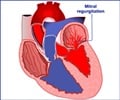Risks and Prognosis
Risks of Mitral valve replacement vary according to the patient's pre-existing problems or other associated defects. Overall
Risk of death is high in patients with pre-operative renal insufficiency, cerebrovascular disease, unstable angina and elderly patients.
In general, the complications related to surgery are as follows:
- Infection – Skin infections can be treated with proper antibiotics. Breastbone infection is a rare but serious complication. It may even result in the removal of the breastbone or death.
- Bleeding
- Blood clots because of the mechanical valve.
- Thromboembolism - Blood clots travels in the blood and occludes a different artery.
- Prosthetic Valve Infection - This is more common than infection of the native valve.
- Valve failure (less than 0.01%). Another replacement surgery is required to correct this problem.
- Heart attack during or immediately after surgery (0.004%).
- Stroke (1%)
Mitral Valve repair is preferred in most patients where replacement can be avoided. The long-term outcomes are good for both, better in mitral valve repair. However, long-term results can be influenced by other pre-existing conditions.
Studies show that ischemic heart disease with severe mitral regurgitation is associated with poor survival rates after mitral valve surgery.
Researchers have reported that death rate in patients over 75 years of age undergoing mitral valve procedures has decreased to a 5% from 27%.












